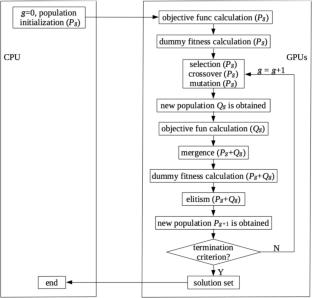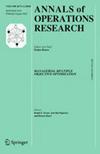A fully parallel multi-objective genetic algorithm for optimization of flexible shop floor production performance and schedule stability under dynamic environments
Abstract
As the work environment changes dynamically in real-world manufacturing systems, the dynamic flexible job shop scheduling is an essential problem in operations research. Some works have taken rescheduling approaches to solve it as the multi-objective optimization problem. However, previous studies focus more on solution quality improvements while ignoring computation time. To get a quick response in the dynamic scenario, this paper develops a fully parallel Non-dominated Sorting Genetic Algorithm-II (NSGA-II) on GPUs and uses it to solve the multi-objective dynamic flexible job shop scheduling problem. The mathematical model is NP-hard which considers new arrival jobs and seeks a trade-off between shop efficiency and schedule stability. The proposed algorithm can be executed entirely on GPUs with minimal data exchange while parallel strategies are used to accelerate ranking and crowding mechanisms. Finally, numerical experiments are conducted. As our approach keeps the original structure of the conventional NSGA-II without sacrificing the solutions’ quality, it gains better performance than other GPU-based parallel methods from four metrics. Moreover, a case study of a large-size instance is simulated at the end and displays the conflicting relationship between the two objectives.


 求助内容:
求助内容: 应助结果提醒方式:
应助结果提醒方式:


